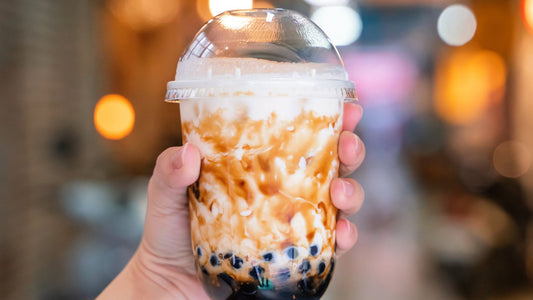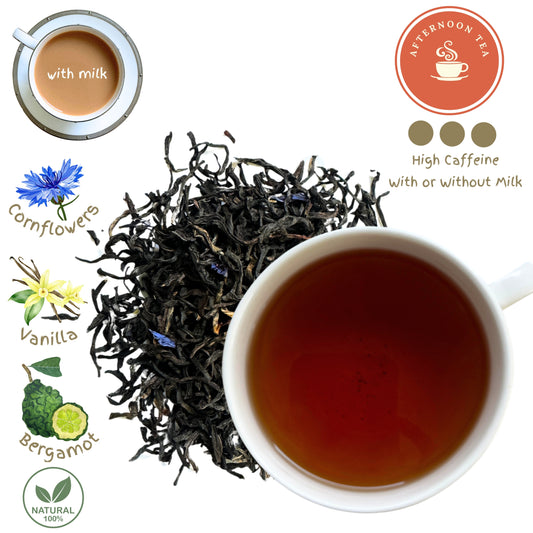Choosing Plastic-Free: How maNASA Tea is Contributing to Ocean Conservation
The ocean, often called Earth's life support, holds 97% of the world's water and plays a crucial role in regulating our climate, absorbing CO2, and providing a primary source of protein for over a billion people. Despite its critical importance, our oceans are severely threatened by plastic pollution. Each year, approximately 12.7 million tonnes of plastic are dumped into our oceans, leading to catastrophic consequences for marine life and ecosystems. The decisions we make today will determine the health of our oceans for the next 10,000 years.
The Impact of Plastic Pollution
The statistics paint a dire picture of the impact of plastic pollution on our oceans:
- Over 1 million seabirds and 100,000 marine animals die each year due to plastic pollution.
- Alarmingly, 100% of baby sea turtles have plastic in their stomachs.
- Our oceans are now home to 5.25 trillion pieces of plastic debris, with 46,000 pieces per square mile.
- The Great Pacific Garbage Patch, a massive accumulation of plastic waste, spans approximately 1.6 million square kilometers—more significant than Texas.
- Each year, 33 billion pounds of plastic enter the marine environment, adding to the staggering 75 to 199 million tons of plastic waste currently in our oceans.
These statistics highlight the urgent need for change. Plastic waste not only endangers marine life but also impacts human health, with 1 in 3 fish caught for human consumption found to contain plastic.
The Role of Plastic-Free Packaging
One of the primary contributors to plastic pollution is single-use plastic packaging. The world produces 381 million tonnes of plastic waste yearly, expected to double by 2034. Shockingly, only 9% of this plastic has ever been recycled. In the UK alone, over 2 million tonnes of plastic packaging are used yearly, with Britain contributing an estimated 1.7 million tonnes of plastic waste annually.
maNASA Tea's Commitment to Sustainability
At maNASA Tea, we are committed to being part of the solution rather than the problem. Understanding the critical state of our oceans, we have taken significant steps to ensure our products are packaged without plastic. By choosing plastic-free packaging, we aim to reduce our environmental footprint and contribute to the preservation of marine life and ecosystems.
Our plastic-free packaging helps reduce plastic waste and encourages our customers to make more sustainable choices. Here's how we are making a difference:
- Eco-friendly Materials: Our packaging is made from compostable and recyclable materials, ensuring that it does not contribute to the growing problem of plastic pollution.
- Biodegradable bio-plastics made with plant-based material, not petroleum-based material
- Packaging made with Palmyrah leaves, Banana leaves, compostable kraft paper and labels, bamboo, glass, recyclable metal tins, recycled paper with rejected tea leaves, and Elephant poo! (yes, you heard it right! Learn more about our Elephant Poo packaging by EcoMaximus)
- Sustainable Sourcing: We prioritize sourcing materials with minimal environmental impact, promoting sustainability throughout our supply chain.
- Consumer Awareness: Through our packaging and marketing efforts, we aim to raise awareness about the effects of plastic pollution and the importance of making eco-friendly choices.
A Call to Action
The fight against plastic pollution requires collective action. Consumers can play a crucial role in reducing plastic waste by choosing products like maNASA Tea, which is committed to sustainability. Every small change, like opting for plastic-free packaging, can significantly impact our oceans' health.
As we continue to witness the devastating effects of plastic pollution, we must take responsibility for our actions. Let's work together to protect our oceans for future generations. Choose maNASA Tea and be part of the movement towards a plastic-free future.
Together, we can make a difference. Let's ponder the impact of plastic again.
- Over 1 million seabirds and 100,000 marine animals die from plastic pollution yearly.
- 100% of baby sea turtles have plastic in their stomachs.
- There are now 5.25 trillion macro and micro pieces of plastic in our ocean & 46,000 pieces in every square mile of ocean, weighing up to 269,000 tonnes.
- An estimated 75 to 199 million tons of plastic waste are currently in our oceans, with a further 33 billion pounds of plastic entering the marine environment every year.
- Around 8 million pieces of plastic make their way into our oceans daily.
- The Great Pacific Garbage Patch is around 1.6 million square kilometers – more significant than Texas.
- The world produces 381 million tonnes of plastic waste yearly – this is set to double by 2034.
- 50% of this is single-use plastic & only 9% has ever been recycled.
- Over 2 million tonnes of plastic packaging are used annually in the UK.
- 88% of the sea's surface is polluted by plastic waste.
- Between 8 to 14 million tonnes enter our ocean every year.
- Britain contributes an estimated 1.7 million tonnes of plastic annually.
- The US contributes 38 million tonnes of plastic every year.
- Plastic packaging is the biggest culprit, resulting in 80 million tonnes of waste yearly from the US alone.
- There are 5000 pieces of plastic & 150 plastic bottles on UK beaches for each mile.
- More than 1 million plastic bags end up in the trash every minute.
- The world uses over 500 billion plastic bags annually – 150 for each person on Earth.
- 8.3 billion plastic straws pollute the world's beaches, but only 1% of straws end up as waste in the ocean.
- 1 in 3 fish caught for human consumption contains plastic.
- Plastic microbeads are estimated to be one million times more toxic than the seawater around them.
- Products containing microbeads can release 100,000 tiny beads with just one squeeze.
PLASTIC POLLUTION IN THE OCEAN FACTS
How much plastic is in the ocean?
- 8 million pieces of plastic pollution find their way into our ocean daily.
- Plastic has grown exponentially from 2 million tonnes per year in 1950 to 460 million metric tons in 2019.
- 79% of plastic waste is sent to landfills or the ocean, while only 9% is recycled, and 12% gets incinerated.
- 25 trillion macro & 51 trillion microplastics litter our oceans.
- By 2025, about 250 million metric tons of plastic will likely enter the oceans.
- Lost fishing gear, known as ghost gear, accounts for around 20% of all marine plastic.
- Most floating plastics can be traced back to 5 fishing nations: the US, Japan, South Korea, China, and Taiwan.
- Of that, 269,000 tonnes float on the surface.
- This is the equivalent of 1345 blue whales & 500 times the number of stars in our galaxy.
- 4 billion plastic microfibers per square kilometer clutter the sea.
- Between 4.8 and 12.7 million tonnes of plastic pieces are dumped into our oceans yearly.
- One garbage truck of plastic is discarded into our oceans every minute.
- Approximately 5,000 items of marine plastic pollution have been found per mile of beach in the UK.
- 165 million tonnes of plastic currently circulates in Earth's marine environments.
- Only 1% of marine litter floats; everything else sinks to the sea floor.
- Plastic has been found as far as 11km deep, contaminating the most remote places on Earth.
- Yearly, up to 12.7 million tonnes of plastic enters our oceans.
It escapes from landfill sites, floats down our drains, ends up in rivers, and goes into our oceans. Plastic waste is invisible to the naked eye; it collects in ocean gyres, where marine life feeds.
It's not only the single-use plastic, such as plastic bottles and straws you use, but the microbeads in your cosmetics, the fibers in your clothing, and your teabags. As only 1% of this plastic floats, everything else sinks to the floor, polluting the most remote places on Earth.
At the rate we still use plastic, the problem is set to increase tenfold. This impact on the ecosystem, marine life, and humans is potentially irreversible.
Sources: SAS, Ocean Crusaders, Earth Day,










